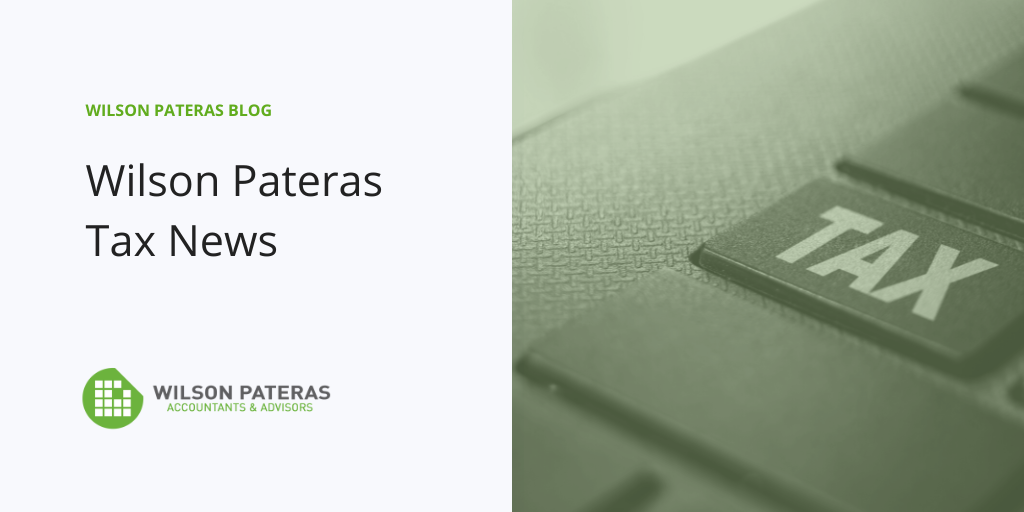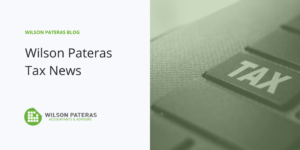
Our July 2023 monthly edition of Tax News contains information on a number of recent developments, including:
- Court penalises AMP $24 million for charging deceased customers
- The super guarantee rate is increasing
- Minimum annual payments for super income streams
- Know your private company loan arrangements before you lodge
- Proportional indexation of transfer balance caps from 1 July 2023
- Masters course fees not deductible as self-education expenses
Court penalises AMP $24 million for charging deceased customers
The Federal Court has found that four companies that are or were part of the AMP Group breached the law when charging life insurance premiums and advice fees from the superannuation accounts of more than 2,000 deceased customers.
The Federal Court ordered two of these AMP companies to pay a combined penalty of $24 million for the breaches.
Both AMP Life Limited and AMP Financial Planning admitted that they engaged in unconscionable conduct by deducting and/or failing to properly refund insurance premiums and advice fees respectively from superannuation members after being notified of their deaths. Both companies also admitted that they accepted insurance premiums and advice fees despite there being reasonable grounds for believing that they would not be able to supply the insurance or advice.
The Court also found all four AMP companies contravened their overarching obligations as Australian financial services licensees to act efficiently, honestly and fairly.
The super guarantee rate is increasing
Businesses that have employees, or hire eligible contractors, will need to ensure that their payroll and accounting systems are updated to reflect the new super guarantee rate of 11% for payments of salary and wages that are made from 1 July 2023.
Businesses need to calculate super contributions at 11% for their eligible workers for payments of salary and wages they make from this date.
Super contributions for the quarter ending 30 June (due by 28 July 2023) are still calculated at the 10.5% rate for payments of salary and wages made prior to 1 July.
Minimum annual payments for super income streams
The ATO reminds taxpayers that an SMSF must pay a minimum amount each year to a member who is receiving a pension that commenced on or after 20 September 2007 (e.g., account based pensions). If the minimum payment is not made by 30 June, this can result in adverse taxation consequences for the member
In response to COVID-19, the government temporarily reduced superannuation minimum drawdown requirements for account-based pensions and similar products by 50% for the 2020, 2021, 2022 and 2023 financial years.
However, for the 2024 financial year, the 50% reduction in the minimum pension drawdown rate will no longer apply.
This means that, from 1 July 2023, when taxpayers calculate the minimum annual payment for their pension, the 50% reduction will not apply to the calculated minimum annual payment.
Contact us if you require assistance in determining the minimum pension payment that must be made in the 2024 financial year.
Know your private company loan arrangements before you lodge
The ATO advises taxpayers that, if they or an associate take a loan from their private company, they should not forget the requirements of repaying a private company loan for income tax purposes. Otherwise, they could find the loan treated as a Division 7A deemed dividend and included in their, or their associates’, assessable income.
Taxpayers should consider the following in particular before lodging their private company tax return:
- ensure their loan is a Division 7A complying loan and make minimum yearly repayments; and
- they can’t borrow further money or assets from the same company, directly or indirectly, to make minimum yearly repayments or repay the loan – if they do, these payments may not be taken into account and could result in an assessable deemed dividend.
The ATO encourages taxpayers to check their loan repayments and, if they are concerned a payment will not be taken into account, they should speak to their registered tax adviser or contact the ATO.
Please contact us if you require assistance in relation to your loan arrangements.
Proportional indexation of transfer balance caps from 1 July 2023
The ATO reminds taxpayers that, on 1 July 2023, the general transfer balance cap will be indexed. Individuals will have a personal transfer balance cap between $1.6 and $1.9 million, based on the highest ever balance of their transfer balance account between 1 July 2017 and 30 June 2023.
While indexation will occur on 1 July 2023, the ATO won’t be displaying member’s updated personal transfer balance caps until 11 July 2023.
The ATO encourages all SMSFs to report any events that occurred prior to 1 July 2023 by 30 June 2023, to ensure member’s personal transfer balance cap calculations are based on correct and up to date information.
From 11 July, both members and their agents will be able to view the member’s personal transfer balance cap on the ATO’s website.
After 11 July 2023, a member’s personal transfer balance cap will be recalculated if the ATO receives reporting of events effective prior to 1 July 2023.
Individuals can continue to report transfer balance cap information to the ATO between 1 July 2023 and 11 July 2023, however these will not be processed until after this period.
This means the ATO won’t be able to issue or revoke excess transfer balance determinations it has sent to a member, or commutation authorities it has sent to a fund.
Processing of any reported events will continue as normal after 11 July 2023.
Masters course fees not deductible as self-education expenses
The Administrative Appeals Tribunal (‘AAT’) has held that tuition fees for a public policy Masters course were not deductible, on the basis that the course did not relate to the taxpayer’s work as a music teacher.
The taxpayer was a qualified teacher who specialised in teaching music. He had commenced a Masters Course at the University of Melbourne (the Masters course), and subsequently claimed a deduction for work-related education expenses in relation to the subject tuition fees. The taxpayer submitted that the Masters course would expand the breadth of subjects he could teach and therefore help him secure management positions.
However, the ATO disallowed the deduction as it was not satisfied that a real and direct connection existed between the study and the taxpayer’s work.
The AAT confirmed the ATO’s decision that the fees were not deductible as self-education expenses, as the tuition fees were not incurred in gaining or producing the taxpayer’s assessable income. The subjects undertaken by the taxpayer in the 2021 year, for which he was seeking to claim a deduction, “did not maintain or improve his skills or knowledge as either a music teacher or relief teacher“.
The AAT also noted that, in incurring the claimed self-education expenses, the taxpayer’s intention “of being able to expand his ability to teach in subjects outside of music and to gain leadership positions relate to new employment or new income-earning activities and as such is not sufficient basis for those expenses to be deductible”.
This content has been prepared by Wilson Pateras to further our commitment to proactive services and advice for our clients, by providing current information and events. Any advice is of a general nature only and does not take into account your personal objectives or financial situation. Before making any decision, you should consider your particular circumstances and whether the information is suitable to your needs including by seeking professional advice. You should also read any relevant disclosure documents. Whilst every effort has been made to verify the accuracy of this information, Wilson Pateras, its officers, employees and agents disclaim all liability, to the extent permissible by law, for any error, inaccuracy in, or omission from, the information contained above including any loss or damage suffered by any person directly or indirectly through relying on this information. Liability limited by a scheme approved under Professional Standards Legislation.




